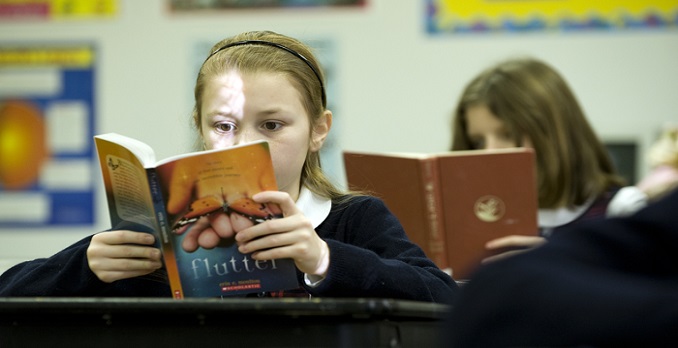If some parents let their child live their life in school, others are far too much on the back of their offspring, to push them to succeed.
The subject of family pressure is frequent in the school setting. Especially as it is applied to two different people: teacher, first, that sees its methods criticized by people who do not necessarily know much. But also, the child, for whom having his parents on his back is not necessarily an asset.
When parents look at their children
According to Agnes Perrin-Turenne, Director of Development and Pedagogy at Academy, there are two types of parental pressure. She explains: ” The first is that parents who have experienced their own failure in school, and do not want their child to experience the same thing, or the frustration they may feel toward Of their own journey “. The result, these parents will do everything so that their child is not experiencing school failure, even impose on him an intense pressure, pushing it to have better grades (even if they are already more than adequate), And to work more and more. Second scenario: “There are some parents who have a high demand, due to the pressure from society or their own requirements.” In some families, the royal road is the only possible path for children. This imposes particularly heavy pressure.
What solution, then? Find a balance. Parents are welcome to participate in their child’s studies. But not to the point of completely replacing the teacher, nor of imposing an excessive workload, in addition to what the pupil must already do at school and outside.
Read Also: The school divide
Higher education, if not nothing
Another phenomenon to be considered? The “normalization” of higher education. In a world where the unemployment curve is climbing, it is recommended students to make long studies: bachelor, master, doctorate … While the trades that require shorter courses are increasingly judged as “less noble”, While they are equally essential to our society, and that they can enable many young people to flourish.
Especially since the chaining higher education is not necessarily a good thing nor a guarantee of finding employment: on-graduates over-qualified, young people often find themselves having to link the courses and to pay for long, usually very expensive studies.
The school map or the delocalized quest for success
This race to elitism entails different consequences, psychological first because it formats some students but not only. For several years, it has become apparent that some parents are willing to move for the sole purpose of enrolling their offspring in a “good” institution. Let’s start with a brief reminder: the school board is a segmentation of schools according to the places of residence. According to the Ministry of Education, it allows “the assignment of a student at a college or a general or technological high school corresponding to their place of residence. However, every family has the opportunity to submit a waiver request to its Child is enrolled in an institution of his or her choice “. But it has the gift of annoying parents, who sometimes feel that the college or high school of their place of residence does not fit the “standing” of their child.









